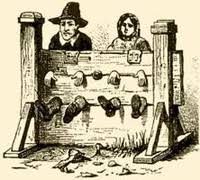Introduction
Have you ever wondered how crimes and punishments have changed throughout the ages ?In this writing:there will be details of crime and punishment from the the Roman era to modern Britain. Throughout all they times and further back in history. People have always committed theft most throughout the years
Crime and punishment in Roman times
From the year 43 to 410 the Romans ruled Britain . Punishments in this time were very deadly even theft could end up which you dead. (It is proven that theft was the most common crime in history) During Roman times crime was very unequal . Some of the crimes that were used back then are still used to this day so are some punishments. Back then you were lucky to survive a punishment. A lot of punishments were public which meant other people could see.
Crime and punishment in
the Anglo-Saxon times
The Anglo-Saxons began in 410 AD. During this time, punishments were not meant to kill you they were meant to make you stand out. Such as is if you murdered someone you would have an M branded on you so people know you have killed someone. If you committed treason you would get a death penalty.
Crime and punishment in Tudor times
During the Tudor times punishments were all about pain and killing. Whether you committed a crime and they couldn’t decide if you were guilty or not you would have to walk across burning hot coals. Then you would be left alone for 3day if you’re feat wouldn’t heal you were guilty and you would be killed. Most of the punishments were public and some punishments include the public being able to hurt you.
Crime and punishment in the Victorian times
In the Victorian times a large amount of people were poor so children had to work. At the age of 10 you were a adult. If you were young and fit you would be sent on a damp wet boat and you would be shipped to Australia. If you got to Australia and the boat wouldn’t sink or broke you would have to work at a work home it was miserable when you turned 18 you would be let out. But you would probably go back because you wouldn’t have any were to go.
Crime and punishment in WW2
In WW2 ever one was important so if you committed a crime you would go to jail for a short amount of time. If you were caught selling things on the black market you would pay a fine and depends what you were selling you could have been imprisoned . During WW2 a lot of places were bombed.
Good factual information, Michal. You have worked hard to vary your sentence structures, with some correct commas within these sentences. You have chosen some key vocabulary too to support your writing.

